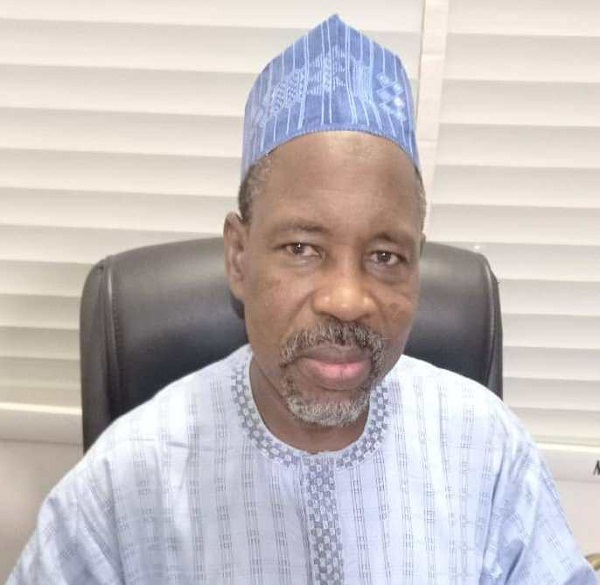Engr Aliyu Tukur Tahir is the Managing Director/CEO of the Nigerian Electricity Management Services Agency (NEMSA). In this interview, he speaks on how the Electricity Act has made it mandatory for meter manufacturers to undergo tests before they are deployed to the market.
How has the Electricity Act 2023 empowered the agency to effectively implement the technical standard of the electricity industry, including the ability to impose sanctions in cases of infractions?
The Electricity Act 2023 is a welcome development to the power sector and the country at large. It has brought in the liberalisation of the electricity market thereby establishing state electricity markets.
For NEMSA, it has further strengthened the agency by making additional provisions such as Section 184 subsection 8, 9, 10 and Section 114 (5). These provisions made it mandatory for all players in the sector to carry out the enforcement directives from NEMSA because failure to carry out such directives is now an offence which can be sanctioned.
- FG plans productivity-based wage system for workers
- My foundation has funded 700 health entrepreneurs – Elumelu
Another area is that it has also made it mandatory that all utility companies now have to report occurrences of all electrical accidents within 48 hours to NEMSA for investigation. It is through the investigations of electrical accidents that the causes are determined and recommendations are now made to forestall future occurrences of these accidents.
In terms of meters, how is the agency ensuring that customers are not cheated by the DisCos through defective calibrations?
One of the agency’s activities is to ensure that electrical materials used in the networks are of the right quality, right specifications and right standards before they are allowed to be used, including the electricity meters that we have in our various premises and houses. For meters specifically, we have about four-meter test stations that are running right now. Two are already under construction. The buildings have been completed and the test equipment on their way to resources and to bring our national meter test stations to six in number. What would they do? They carry out testing and certification of these electricity meters. So, before you are allowed to deploy any electricity meter in the country, that meter must have been tested and certified by NEMSA.
This testing will put a meter into a series of tests to ensure it is not destructive. We test the meters in terms of suitability to weather conditions in the country. We test the meters in so many parameters like mechanical, electrical, and at the end the meters come out destroyed. At the end of these series of tests, if they are satisfactory, a type test certificate is now issued for such a brand meter. That’s when you are now allowed to mass-produce such a brand of meter.
When you mass-produce these meters, you are also not allowed to deploy them until they undergo what we call routine tests and certification by NEMSA. Before we release such meters, there are two features that are fixed on them for you to be able to recognise that these have actually been tested and certified by NEMSA. The two features are the NEMSA cream seal which is fixed on the meter.
There was a recent electrocution in Calabar, Cross Rivers State; what was the outcome of your investigations?
There was an electrical incident at Calabar that happened recently which trended online across the country. It was immediately brought to the attention of the honourable minister and we immediately undertook the inspection visit to Calabar to first of all sympathise with the community, visit the victim and then carry out an investigation into the occurrence of the incident.
We sensitised them and advised them on what to look out for in this kind of situation across the country. It was an electric surge and electric surge happens as a result of breakage of cross arms on an 11kV network system.
Calabar is an old town and the network has been there for a long time and it has aged. When you have an aged network, these are bound to happen, especially where the utility companies have not carried out rehabilitation of this network at the due time or have not been carrying out preventive maintenance on the network.
This is one of our major challenges in the country, that the needed investments to revamp the networks and carry out the necessary maintenance of the networks are not actually there due to inadequate liquidity in the sector. The minister has brought the liquidity challenge to the fore and the ministry is working hard to ensure that there is adequate liquidity in the sector so that the necessary rehabilitation of the networks and maintenance are carried out.
What is the agency doing to curb proliferation of substandard products, especially power-saving products?
This is one of the challenges in the power sector because of the number of substandard materials and equipment within this country. NEMSA is not at the ports or entry points into the country. But we have agencies that are allowed there like the customs and the Standard Organisation of Nigeria, SON. What we did as an agency was to collaborate with these agencies. We already have a MoU with SON and a team has been set up between us and the main term of reference for the team is to identify these substandard electrical materials as the agency carries out its statutory activity of inspection and testing across the country. And when these substandard materials and equipment are identified, they are now escalated to SON for them to trace them at the markets and ensure their removal. Ultimately, for us to effectively get rid of these electrical materials, we need to have interfaces at the entry points of this country so that these substandard materials and equipment are not allowed into the country because needing to trace them into the market and removing them is a herculean job.

 Join Daily Trust WhatsApp Community For Quick Access To News and Happenings Around You.
Join Daily Trust WhatsApp Community For Quick Access To News and Happenings Around You.



